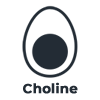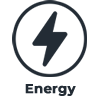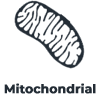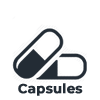What Is Creatine?
Creatine is an important molecule that is produced by our bodies and consumed through our diet. creatine turns into phosphocreatine in the body, and phosphocreatine is able to store and release energy in the form of phosphate groups. Through this mechanism, creatine monohydrate powers many important processes throughout the body. Most notable is that creatine is necessary for proper functioning of our muscles and brains. In addition to this, creatine also helps hydrate our cells. This not only enhances the function of our cells but protects them too!
What Does Creatine Do?
Due to the fact that creatine powers so many different processes throughout the body, it has a lot of different use cases. Athletes can use it to enhance their performance. Students can use it to enhance memory under stressful conditions. Vegetarians and vegans can even use it to support their overall brain health! In general, it is a very versatile molecule and most people can benefit from consuming a little bit more creatine. This is mainly due to the fact that, besides beef, there aren’t many foods that are high in creatine. In addition to this, synthesizing creatine in the body is a fairly taxing process and not very much of it is made. This makes it especially important for vegetarians and vegans to consider a creatine supplement. Which brings us to our next point, what creatine supplement is the best?











